Photo series
Photo series: The Cruzada São Sebastião in Rio de Janeiro
Thousands of people live cheek by jowl in the Cruzada São Sebastião housing project. The coronavirus pandemic has hit them especially hard. Most of them were already living under tough economic conditions and now many of them have lost their jobs. The Afro-Brazilian population has been disproportionately affected by the virus, with racism and inequality thrown into even sharper relief by the pandemic. This is also the experience of the residents of Cruzada São Sebastião.
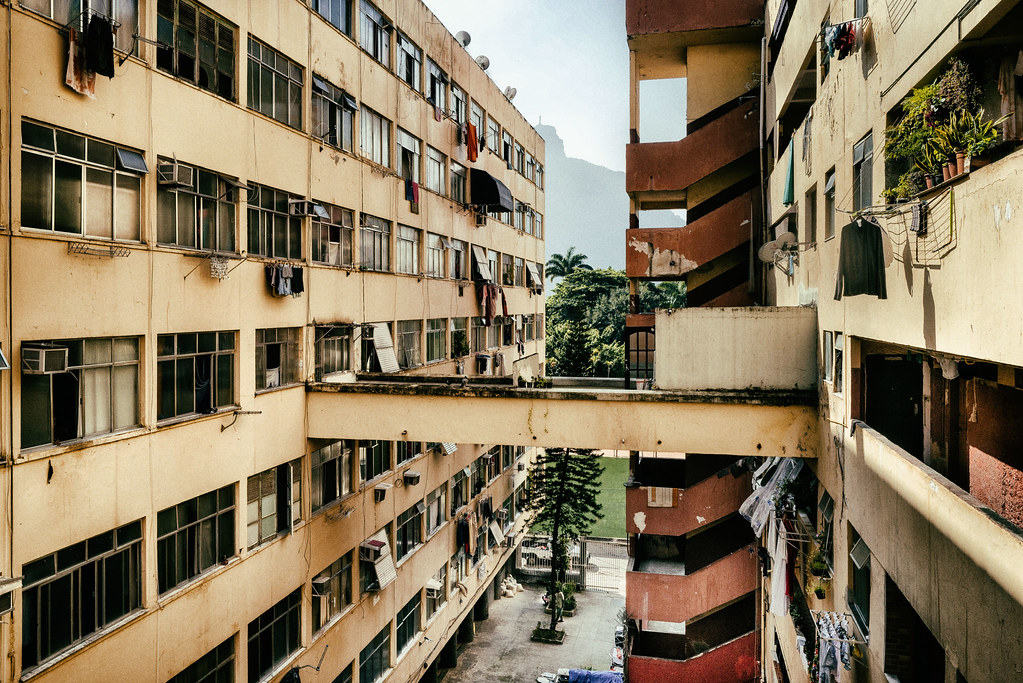
The Cruzada São Sebastião housing project is located right in the middle of Rio’s most exclusive residential district, Lelon. Its 10 blocks with more than 900 apartments are home to more than 7,000 people, many of them Afro-Brazilians. The building was constructed in 1955 by initiative of the bishop and liberation theologian Hélder Cámara, with the aim of rehoming people from the favelas in permanent accommodation close by. © Nicoló Lanfranchi

The first residents included many families from Praia do Pinto. This favela, in the sought-after district of Leblon, was destroyed by fire in 1969 in unexplained circumstances after the government’s unsuccessful attempts to clear it, in the face of resistance from those who lived there. The fire left 9,000 people homeless; 3,000 of them were rehoused in the nearby Cruzada São Sebastião project and the remainder moved to favelas and housing projects further away. © Nicoló Lanfranchi
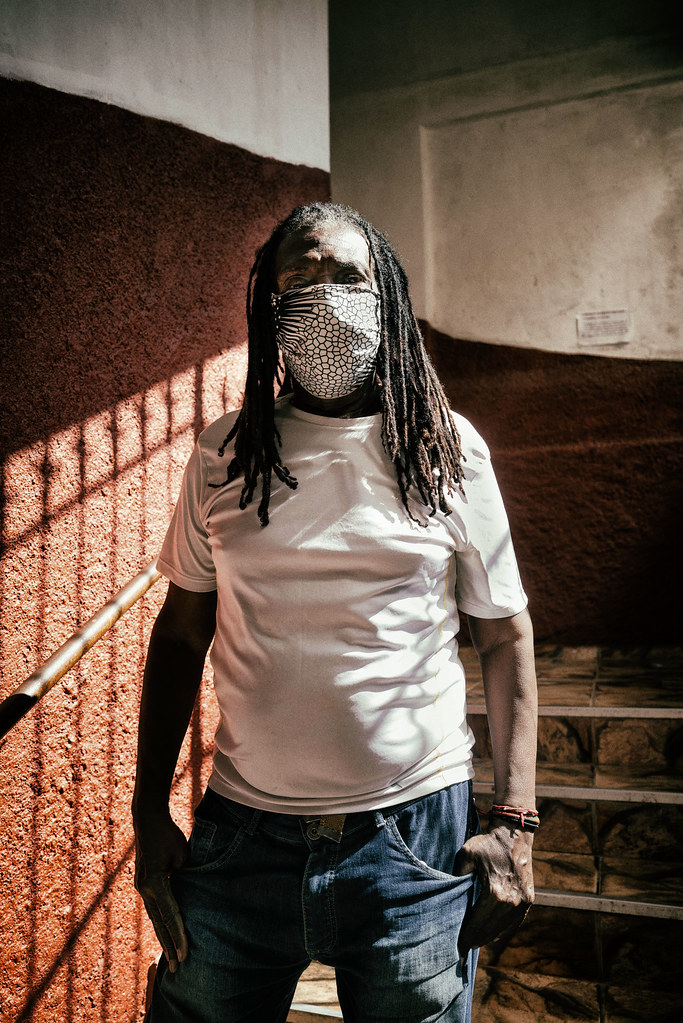
Reinaldo Evangelista (63) is the chairman of the São Sebastião neighbourhood association. “I work in cinema as a freelance producer. I became unemployed as a result of Covid-19. The Brazilian cultural sector was already struggling, but the pandemic has brought it to a complete standstill. I brought the production of the telenovela ‘Amor de Mae’ to Cruzada, but Covid put a stop to that as well. We are all struggling, but we all have friends and people who will take care of us and help us. One day, this will be over. We watch out for each other and act with solidarity and the knowledge that we are all the same and can help each other. I have lived in the Cruzada São Sebastião for 35 years, my wife and my children were born here. I have tried to convince our government to renovate the buildings. The State has washed its hands of them and they are really run down. I did not succeed, but I still believe that I will manage one day. Even if I do not, I will do my bit to make our community better”. © Nicoló Lanfranchi

Eduarda Machado (60) in front of the apartment he lives in with his mother, his older sister and her daughter. “Up until March I worked for a cleaning company, but I was fired because of the pandemic. My niece is the only one still working, in a hospital for infectious diseases, but even she is going to have to give up soon. We are not afraid, we take all possible precautions and are getting on with our lives. Food, hygiene and cleaning products are distributed. I don’t think anybody here is going hungry, in spite of all the difficulties. I have lost many friends, people who grew up with me here in Cruzada, people I worked with, people from my evangelical church community… My concerns are for the ones who have lost their jobs, with all the expenditure they have to bear. The future is extremely uncertain. I hope that all the people who thought only of themselves have started to feel solidarity with others through Covid. The real problem isn’t racism, it’s inequality”. © Nicoló Lanfranchi
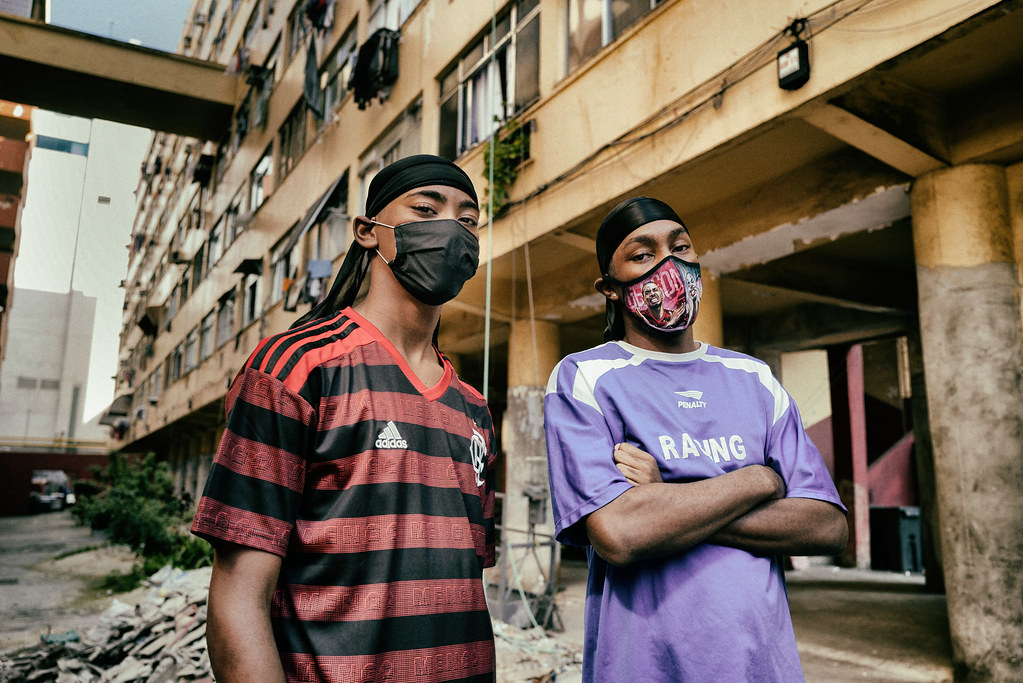
Kauan Alves (17) and Alexandre Silva (19). Alexandre (right) is a student and lives with his mother and grandmother in Cruzada São Sebastião. “I am taking the pandemic very seriously. I only go out if I absolutely have to. Racism, inequality? They’re nothing new, so I can’t get angry about them. It is dissatisfaction. I am continuing on my path”. © Nicoló Lanfranchi
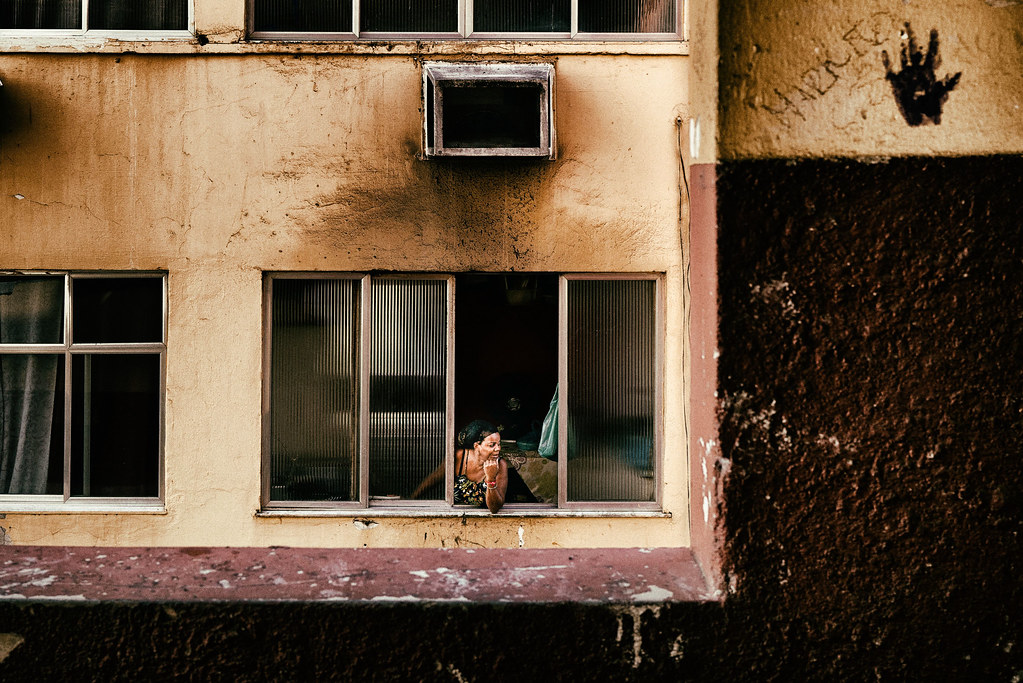
Although there was no official lockdown in Rio, opportunities for activities outside the home have been limited. The “social isolation decree” has been in place since mid-March: schools and childcare facilities were closed down, along with cinemas, theatres, sports facilities and shopping centres. Even trips to the beach were banned. There have been various relaxation measures since then, particularly for the economy and outdoor events. © Nicoló Lanfranchi

Livia Nogueira (29): “The people in the wealthy districts live in flats and can take care of themselves. But how can we, the poor, take care of ourselves? If I don’t work, I can’t keep things going at home. They fired me on 1 June. I will have to leave my home, because I can no longer pay my rent, they are throwing me out. We are struggling to buy things for the children. I live with my two children, one is three and the other two months old, my husband is out of work. This pandemic is a nightmare, it has made life harder for everyone, everybody’s lost their jobs, there are people starving. Because black people are looked down upon, you have more chance of getting a job if you’re white. The greatest inequality I see between black and white people is that they get good treatment in hospitals and can find good jobs”. © Nicoló Lanfranchi

More than 1 million Brazilians in the formal sector and almost 4 million in the informal sector have lost their jobs. In the informal sector in particular, people have no safety net – those who can’t work will usually lose all their income. Anybody who can continue to work does so, such as hairdresser Hellen Souza (38) in Cruzada São Sebastião. © Nicoló Lanfranchi
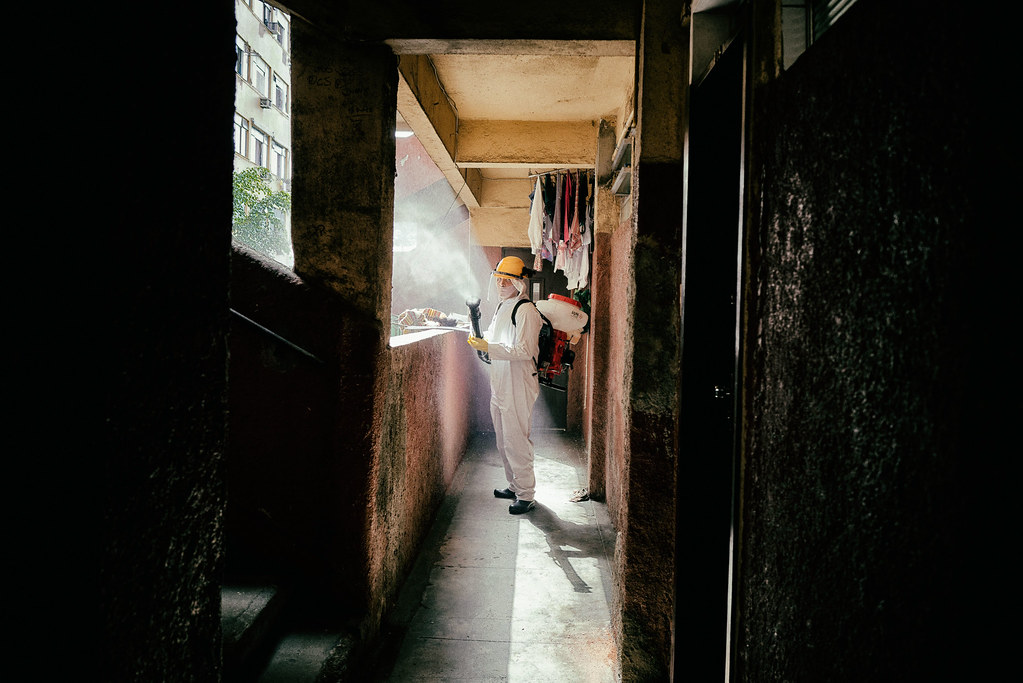
Inhaúma Cemetery, Rio de Janeiro. Afro-Brazilians have been disproportionately affected by the pandemic. According to a study by the University PUC-Rio, the mortality rate for whites is 38%, while it stands at nearly 55% for the black population. This stems from unequal living conditions and economic opportunities – such as being able to afford medical care. © Nicoló Lanfranchi

What looks like part of a housing complex is Rio’s Inhaúma Cemetery in Rio, where walls of burial vaults have been built to make room for the many Covid victims. At the end of July, there were more than 2 million confirmed Covid cases in Brazil and over 80,000 deaths. As only the very sick are even tested for the virus, even the most conservative studies assume that the actual case figures are at least seven times higher. © Nicoló Lanfranchi



